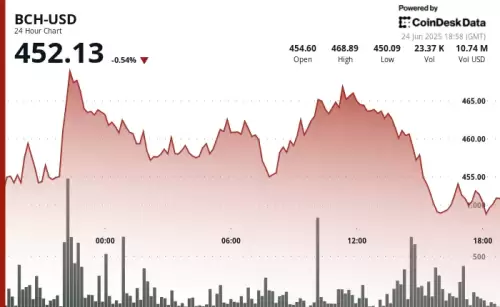Celestia faces accusations of insider dumping impacting TIA token value. Founder Mustafa Al-Bassam defends project's financial health and long-term vision amid community distrust.

Celestia's TIA Token Under Fire: Insider Dumping Allegations and the Founder's Response
Celestia, the modular blockchain network, is navigating rough waters. Accusations of insider dumping have surfaced, sending ripples of concern through its community and impacting the price of its TIA token. The allegations center around claims that early backers and leadership quietly offloaded significant TIA holdings, while retail investors bore the brunt of a subsequent price decline. Founder Mustafa Al-Bassam has stepped up to address the concerns, defending Celestia's financial stability and long-term prospects.
Allegations of Insider Dumping and Opaque Tokenomics
A viral thread on X by “Startup Anthropologist” ignited the controversy, alleging that Celestia's executives had full token unlocks last October. The thread further claimed that Al-Bassam sold over 25 million TIA tokens in over-the-counter (OTC) deals before relocating to Dubai. The post also criticized the project’s multi-year token unlock plan, arguing that it disproportionately benefits early investors at the expense of long-term holders. Another X user, Shrutebuck, echoed these sentiments, stating that early investors profited while regular investors lost out.
The Founder's Defense: Financial Strength and Long-Term Commitment
In response to the mounting criticism, Al-Bassam dismissed the accusations as “increasingly ridiculous” FUD (fear, uncertainty, and doubt). He emphasized that all founders, early employees, and core engineers remain fully committed to Celestia five years in. Al-Bassam also disclosed that Celestia boasts over $100 million in reserves, sufficient to fund operations for at least six years. He argued that significant drawdowns are common in the crypto industry and not necessarily indicative of wrongdoing.
Echoes of Past Skepticism
This isn't the first time Celestia has faced scrutiny. Back in May, investor Larry Sukernik cautioned that Celestia risked prioritizing hype over genuine dApp (decentralized application) traction. He argued that appchains require robust user bases to thrive. At the time, Al-Bassam countered that Celestia predated the current rollup boom and now supports over 30 integrated rollups, claiming roughly half of the data-availability market share.
The Road Ahead: Rebuilding Trust and Delivering on Promises
Despite the controversy, TIA experienced a temporary surge, rising by over 10% after Al-Bassam's defense, trading close to $1.60. However, it remains significantly down from its peak. The real challenge now lies in rebuilding trust within the community. Celestia must demonstrate transparency regarding its token unlocks, achieve roadmap milestones like governance upgrades, and foster authentic developer and user adoption.
My Take: Transparency is Key
While Al-Bassam's defense offers some reassurance, the allegations highlight the critical importance of transparency in crypto projects. Clear and accessible information regarding token distribution, unlock schedules, and team incentives is crucial for fostering trust and preventing accusations of insider manipulation. Celestia's success hinges on its ability to address these concerns and demonstrate a commitment to its community.
So, what's the takeaway? This whole situation is a bit of a rollercoaster, right? Celestia's got the tech, the funding, and a founder ready to throw down. But trust? That's earned, not given. They need to show, not just tell, that they're playing fair. Otherwise, this could be a bumpy ride for everyone involved.












































































